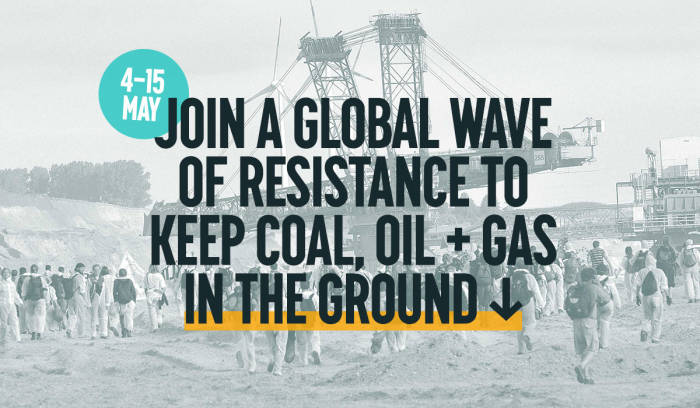BreakFree: the voice of vulnerable but defiant
3 May 2016

Written by Amit Kumar, Pacific Islands CAN Leadership Development Fellow
The Pacific Island countries and other Small Islands Developing States have learnt the hard way how climate change impacts our islands. While we continually prepare for worse to come, knowing that extreme changes are happening in our climate at an unprecedented rate, the coal and fuel fossil industry is constantly searching for opportunities to develop, in pursuit of new operations.
In the Pacific, many of the poor and vulnerable do not have a voice to represent their concerns and hardships. They may not know the science behind unexpected changes in weather patterns they experience firsthand. They are puzzled, as such unpredictable changes in climatic patterns is beyond the scope of their traditional ecological knowledge, but they know it is driven by a force other than the nature.
Therefore, we need organisations and/or movements such as Break Free to represent our voice and act with us and for us where we cannot reach. We are grateful that Break Free is calling for action with local and international organisations, grassroots groups and coalitions, to join a global movement for a transition to 100% renewable energy.
As a Pacific Islander, I support BreakFree for a positive change to the just transition to 100% renewable energy for an economy that I know possible with lower ecological footprint. A 100% renewable energy and green economy has already been demonstrated by some countries. Bhutan is a great example.
Pacific Islanders are afraid that our lands are reducing in size and our invaluable ecosystems that support our livelihoods are being ruined. It is better now than tomorrow to start the transition to 100% renewable energy, so that we leave the remaining carbon in the ground. In this world of possibilities, let’s not procrastinate. Right now, for a greener future, we Pacific Islanders are urging organisations, coalitions, groups and networks to join BreakFree take action to resolve the transition off fossil fuels.

